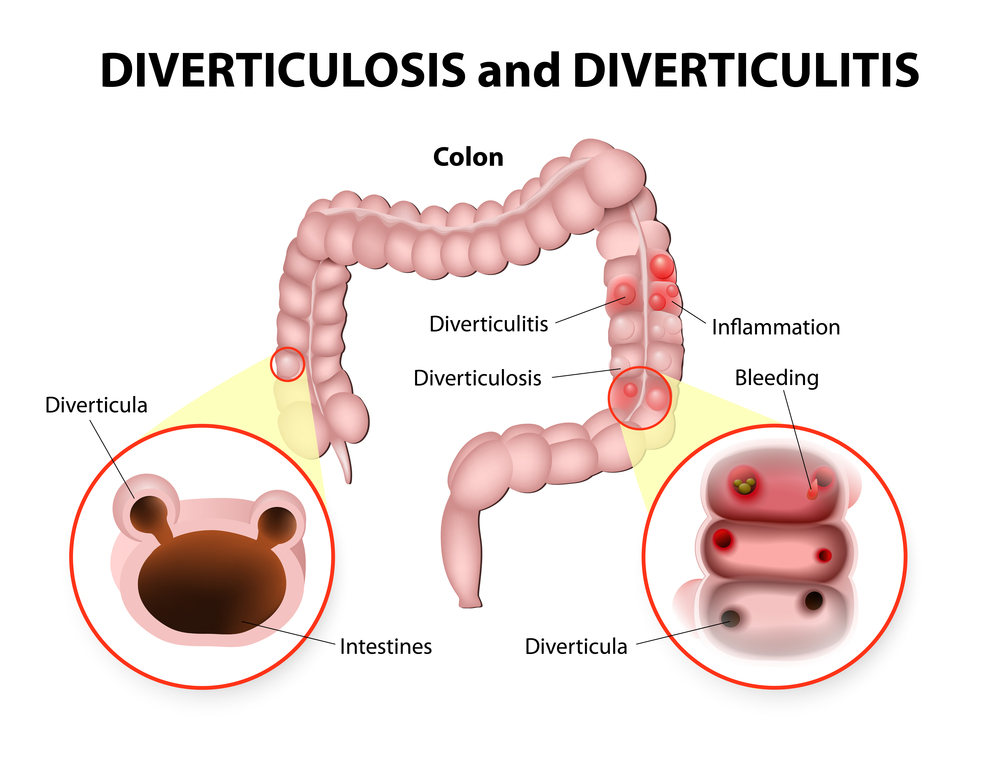
Understanding Diverticulitis
Diverticulitis starts when small, bulging pouches develop in the large intestine (or, rarely, in the small intestine). This condition, called diverticulosis, is common in people over 60.
Most people with diverticulosis don’t have any obvious symptoms. Our doctors often discover the condition through a routine screening in one of our outpatient colonoscopy centers in Sandy Springs and Locust Grove.
However, in around 5% of people with diverticulosis, the diverticula become highly irritated and inflamed. Often, infection develops as well. This complication, called diverticulitis, can cause symptoms such as:
- Severe abdominal pain (usually on the left side)
- Diarrhea or constipation
- Fever
- Poor appetite
- Nausea
- Chronic fatigue
Diverticulitis complications can include:
- Abscesses (pocket of infected fluid)
- Colon narrowing
- A hole (perforation) in the colon
- An abnormal tunnel between the bowel and another organ (fistula)
Diverticulitis symptoms are disruptive and frustrating for many patients, but simple treatment approaches, like changing your diet, are often highly effective.
Fabulous Fiber
Fiber is important in preventing and managing diverticulitis. Increasing dietary fiber helps keep stools soft and promotes regular bowel movements. This reduces pressure on the colon.
We recommend a gradual fiber increase, including more fresh fruits and veggies, whole grains, and beans and other legumes. During a flare-up, we recommend temporarily reducing fiber again and following a clear liquid diet.
Wonderful Water
Hydration is another key factor in managing diverticulitis. Drinking plenty of water helps fiber do its job better and keeps your digestive system running smoothly. We recommend aiming for at least eight glasses of water a day.
Dietary Don’ts for Diverticulitis
In the past, many patients were told to avoid eating specific foods known to trigger diverticulitis, like popcorn, seeds, and nuts. However, a recent large study showed that those foods don’t necessarily cause problems in people with diverticulitis.
Because it’s still uncertain which foods might cause or worsen diverticulitis, we create case-by-case treatment plans based on your symptoms and diet.
Need a Diverticulitis Diet? Our Dedicated Specialists Can Help
We’re here for you if you’re dealing with diverticulitis and need help with your diet. We also offer antibiotic therapy and other diverticulitis management solutions, including minimally invasive surgery to perform repairs if diverticulitis worsens.
Call us at (404) 351-7900 or schedule your appointment online to take the first step toward better digestive health.

